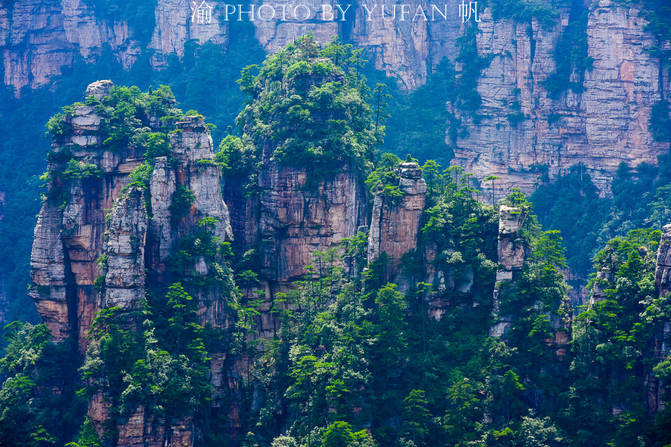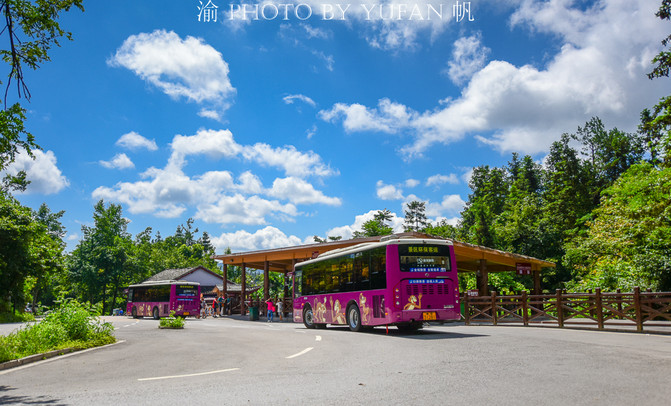A scenic spot in western China is called a sacred mountain and birthplace by South Koreans, and more than 1 million people come for pilgrimage every year.

With the improvement of people's living standards, tourism has become a standard feature of life. Even many people are no longer satisfied traveling at home, and going abroad has gradually become a trend. At the same time, when domestic tourists go abroad, some foreign tourists also target mainland China, especially those world-renowned world cultural heritage and natural heritage sites, which have become their first choice.

Among the many tourist destinations, there is a scenic spot in western China that is particularly popular among Koreans. According to statistics from relevant departments, more than 1 million Koreans travel there every year. Do you know where this scenic spot is? This place is Zhangjiajie in western Hunan.

Yu Fan has traveled to Zhangjiajie many times, and he meets many Korean tourists every time. Moreover, in Zhangjiajie, most slogans are marked in Korean. Even if there is no English in some places, they are still in Korean. Everyone may wonder, Why is this happening? Because I learned from chatting with them that there are mainly the following reasons for their travel to Zhangjiajie:

There is a legend in South Korea that Zhangjiajie was the birthplace of Korean ancestors! Legend has it that their ancestors lived along the Han River, and there is Yunmeng Daze along the Han River. The Korean people made a living by rice and fishing. Every household has a boat and is a boat person. Later, for unknown reasons, they fled in vain. Now some Korean scholars believe that it was caused by the invasion of the Southern Barbarian Chu people. Because of the boats, they fled to the lower reaches along the Han River and the Yangtze River. Since the lower reaches of Wu Yue people could not tolerate them, they went out to sea and traveled along the coast to Taiwan, Liuqiu, and Kyushu, and settled in Kyushu and the southern part of the modern Korean Peninsula.

About ten years ago, some Koreans discovered mountains like the sun and the moon in Zhangjiajie, and there was also a river called Hanshui nearby, which was very similar to the birthplace of their ancestors. So they thought that finding the birthplace of their ancestors would make Zhangjiajie the spiritual destination of Koreans.

Secondly, a large number of South Koreans travel to Zhangjiajie and also thank a Korean named Zhao Hongkui. In 2001, Mr. Zhao Hongkui, then president of the Korea Travel and Tourism Agency, was invited to participate in the Zhangjiajie International Forest Protection Festival. He was immediately impressed by Zhangjiajie's strange mountains, beautiful waters and simple folk customs. Shocked, he actively promoted Zhangjiajie after returning home. Since then, the original natural scenery of Zhangjiajie, a world natural heritage site, has been known to and popular among Koreans.

Third, in 2005, Zhangjiajie City and Hedong County in South Korea officially established a sister city relationship, strengthening the ties between the two places. Moreover, Zhangjiajie Hehua Airport has a large number of direct flights to South Korea, which also makes it convenient for South Korean tourists to come and travel. You should know that Zhangjiajie Hehua District is not a large airport. Even many domestic cities do not have direct flights, and there are not many connecting options, but there are many direct flights to South Korea.

Fourth, the per capita consumption of South Korea traveling to Zhangjiajie is very favorable. Similar to Chinese traveling to Southeast Asia, the convenient transportation and preferential conditions make them traveling to Zhangjiajie even cheaper than their trip to Jeju Island, the southernmost tip of the country. The price is extremely high, so this has become the preferred destination for their honeymoon and sending their parents abroad.

During his chat with his Korean friends, Yu Fan learned that they must watch a performance when traveling to Zhangjiajie, which is the local "Charming Xiangxi" with rich regional and ethnic characteristics, because in their view, since this may be their birthplace, then appreciating the regional culture here is like finding their long-lost spiritual home.

This is the story of Koreans and Zhangjiajie. I wonder if you have noticed this situation when you go to Zhangjiajie. Really, you can hear people communicating in Korean everywhere you go. The scenic area is also equipped with a large number of Korean tour guides and other staff, and there are even many Koreans who come here to do business and work as service personnel. This must be very rare in the country, right?
